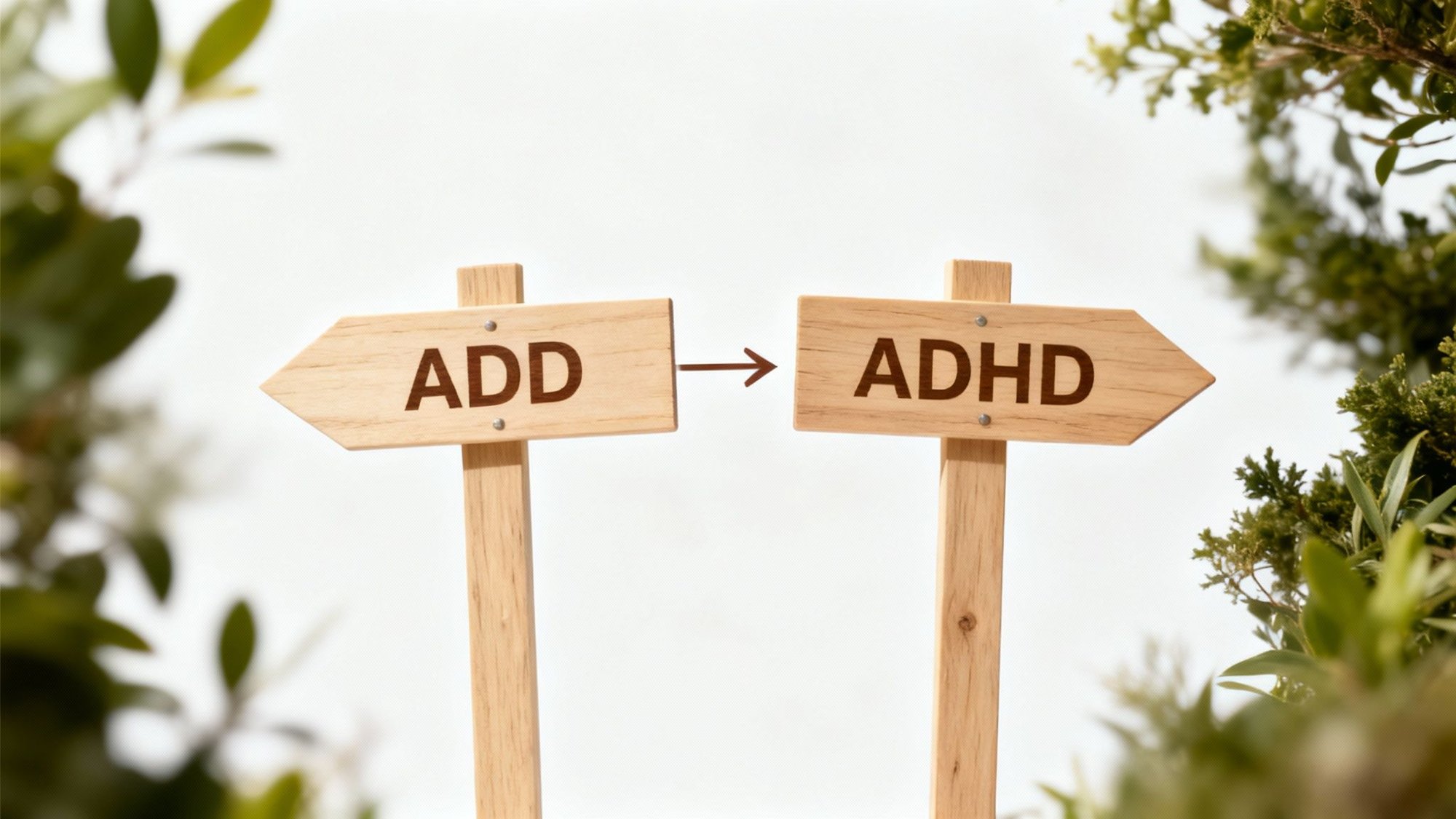Like many ADHDers, there have been countless times in my life when I've had to hold myself back after hearing a neurotypical say, "OMG! I'm so ADHD!"
PSA: Just because you sometimes forget why you walked into a room, doesn't mean you have ADHD.
But I've recently learned that this PSA applies to more conditions than I realized. For example, just because someone appears self-absorbed in a particular situation doesn't mean they have narcissistic personality disorder (NPD). And calling someone narcissistic just because they're acting selfish in a specific setting is just as ignorant as claiming you have ADHD because you were distracted by a squirrel.
Too long; didn't read
- ADHD and narcissistic personality disorder share overlapping traits like rejection sensitivity and communication challenges.
- ADHD and NPD have at least one comorbidity in common: depression.
- Both ADHD and NPD are caused by genetics and environmental factors.
- The conditions benefit from different therapy treatments.
Narcissistic personality disorder (NPD): the basics
Narcissistic personality disorder is a condition that causes someone to have an unreasonably elevated perception of their importance, leading to a constant need for excessive attention and admiration from others.
People with NPD often have a sense of entitlement and may struggle to empathize with or care about the feelings of others. Unfortunately, NPD traits often lead to difficulties in maintaining healthy relationships.
NPD is characterized as a cluster B personality disorder, along with borderline personality disorder (BPD), histrionic personality disorder (HPD), and antisocial personality disorder (APD).
NPD vs. ADHD
Sensitivity
While NPD and ADHD are both associated with sensitivity, the underlying causes are vastly different.
Sensitivity in ADHD
Many people with ADHD have experienced rejection-sensitive dysphoria (RSD). With RSD, we'll feel a deep need for acceptance and validation from others simply because we want the reassurance that we're not screwing up; screwing up would make us vulnerable to criticism.
Because of our challenges with emotional dysregulation, people with ADHD also struggle to process and control the emotions that can come from RSD episodes.
Sensitivity in NPD
On the other hand, narcissistic individuals may be hypersensitive to criticism or rejection, which can trigger intense feelings of shame, anger, or resentment. However, this sensitivity is often rooted in the belief that they deserve praise and recognition—unlike ADHD, where sensitivity generally comes from low self-esteem.
In addition, people with NPD may be overly sensitive about being underestimated, ignored, or devalued. Both forms of sensitivity are the product of emotional dysregulation, and both can trigger impulsive aggression.
Empathy
Further distinguishing ADHD and NPD is sensitivity toward others—or a lack thereof; in other words, empathy. People with NPD are, by definition, self-focused and self-involved.
ADHD and toxic empathy
ADHDers have a unique capacity to relate to and sympathize with others. But unfortunately, being an empath isn't always a good thing, as it can lead to an extreme version known as toxic empathy. But, of course, a pronounced lack of empathy, like that of someone with NPD, is just as self-destructive.
Communication skills
Both ADHDers and NPDers exhibit stonewalling behavior during conversations, but the motivation behind their actions and how it manifests differs.
ADHD and zoning out
ADHDers may unintentionally zone out during conversations if they become distracted by other stimuli or feel overwhelmed by the details being discussed. When it's intentional, they may lie or distort the truth as a coping mechanism to avoid further discussion.
NPD and checking out
On the other hand, narcissistic people will stonewall as a defense mechanism when they feel insulted or offended. They may shut down communication to protect their ego or avoid criticism. They're also more likely to lie and distort truths to benefit themselves.
Relationships
Love-bombing
While both may show signs of falling in love rapidly, only those with NPD tend to exhibit "love-bombing." This manipulative behavior involves showering new romantic partners with grand gestures and constant attention—not because they're genuinely in love, but because they want control over the relationship.
Consuming passion
People with ADHD may experience intense passion and infatuation at the beginning of relationships due to their love for newness and hyperfixation tendencies. But it's important to note that this is not a form of love-bombing. Instead, it's an intense focus on a new partner due to the excitement and stimulation produced by the novelty of the relationship.
Comorbid conditions
Comorbidities are conditions that co-occur with one another in the same person simultaneously. ADHD and NPD share at least one comorbidity: depression.
NPD comorbidities
Meanwhile, many people with NPD also have bipolar disorder (a common misdiagnosis, incidentally, in people with ADHD). According to the American Journal of Psychiatry, NPD "most commonly co-occurs with antisocial, histrionic, borderline, schizotypal, and passive-aggressive personality disorders." 1
(🧠 You can learn more about ADHD-specific comorbidities here.)
What causes ADHD and NPD?
ADHD and NPD may have some overlapping causes, but the nature of these causes differs significantly.
Genetics
Both NPD and ADHD can be passed down from a parent. However, the inherited characteristics of ADHD and NPD are not the same.
In ADHD, genetic factors may influence certain behaviors and mannerisms. In NPD, particular ways of thinking may be passed down through generations.
Environmental factors
Narcissistic personality disorder can result from a childhood environment in which parents showered them with excessive praise or criticism, often inconsistent with their actual experiences or achievements.
In contrast, ADHD may have environmental roots in the womb and shortly after birth. For example, exposure to lead or substance use during pregnancy, premature delivery, and low birth weight are all potential factors that can increase the chances of ADHD.
Treatments
The primary treatment for NPD is psychotherapy, designed to reframe how patients think about themselves and improve their social skills.
There are two popular forms of therapy for ADHD: cognitive behavioral therapy (CBT) and psychological counseling. And while it's the sole recommended treatment method for NPD, psychotherapy is only one of several options for treating ADHD. 2,3
The bottom line
Ironically, people with ADHD—due to their rejection sensitivity—are often highly self-aware. But self-awareness is also something that people with NPD possess.
Contrary to popular belief, individuals with NPD are often aware of their narcissistic tendencies; some even actively seek treatment. However, those who don't seek treatment still deserve compassion and understanding.
As a person with ADHD, I'm well-equipped to extend empathy and understanding to others—including those with NPD—and I think you are, too. After all, empathy is one of our strengths, and we can use it to foster deeper connections and relationships with those around us.
Sources:
1 American Journal of Psychiatry | Narcissistic Personality Disorder: Diagnostic and Clinical Challenges
2 Journal of Psychiatric Research | Multimodal treatment efficacy differs in dependence of core symptom profiles in adult Attention-Deficit/Hyperactivity Disorder: An analysis of the randomized controlled COMPAS trial
3 Journal of Developmental & Behavioral Pediatrics | Combined Treatment for Children with Attention-Deficit/Hyperactivity Disorder: Brief History, the Multimodal Treatment for Attention-Deficit/Hyperactivity Disorder Study, and the Past 20 Years of Research








